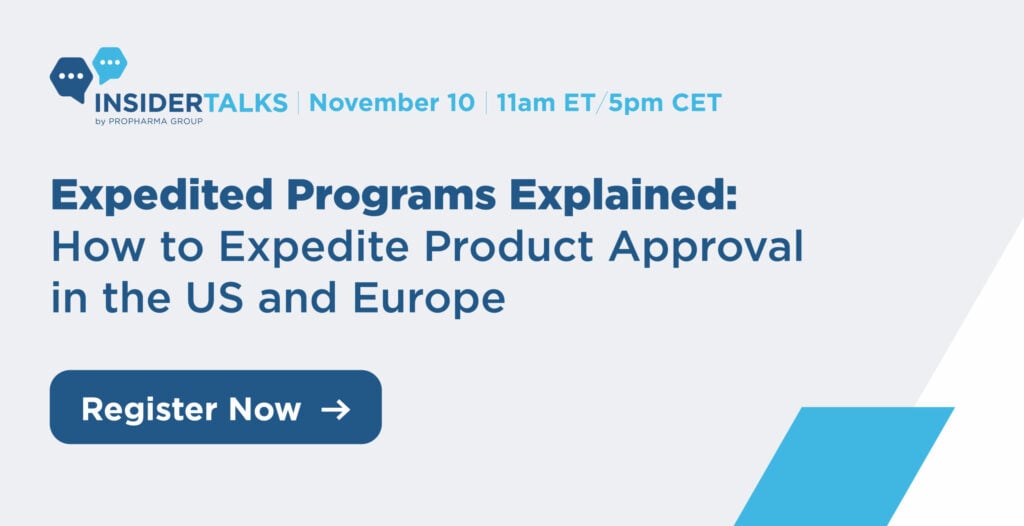June 22, 2022

June 22, 2022

Are you considering requesting scientific advice in Europe? We can help you navigate the various procedures within the European framework to maximize the potential of these important regulatory interactions.
The development of any new medicinal product is a highly regulated, lengthy, complex, and expensive process. In Europe, there are many guidelines and regulations providing the legal framework as well as scientific and regulatory guidance for drug development. Nevertheless, the opportunity to engage early and discuss with the regulators the specific characteristics and needs of a development program is invaluable for drug developers. Through this procedure, developers can ensure that the appropriate studies are conducted and no major objections regarding their design are raised during the review of their marketing authorization application (MAA). Both the European Medicines Agency (EMA) and the National Competent Authorities (NCAs) can provide scientific advice (SA). Understanding the different procedures will help you optimise your development program and ensure that you generate complete and robust data on the safety, efficacy, and quality of your product.
The SA procedure is a perfect opportunity to interact with the regulators and understand their expectations!
The SA is neither legally binding nor a pre-evaluation of a future MAA. Nevertheless, compliance with the received SA would be Regulator’s expectancy and can facilitate the evaluation of the MAA as it is expected that the submitted data is more robust, complete, and relevant to the evaluation of the medicine’s benefits and risks. Therefore, it is advisable that SA is requested earlier rather than later during the development program, i.e. ideally prior to the initiation of pivotal studies, around the time of the End of Phase (EOP) 2 or even EOP1 meeting with the FDA. As FDA discussions commonly precede any interactions with regulators in Europe, it is important that the drug developers are prepared for the eventuality to receive an advice that diverges from the one provided by the FDA. Both the timing of the SA and choice of questions can impact the outcome of the procedure and hence it is important to incorporate this procedure in your overall regulatory strategy for optimal results.
EMA Scientific Advice
Scientific advice from the EMA can be requested for any human medicine, at any time during development, and regardless of whether the medicine is eligible for the centralised authorization procedure or not. During SA, questions can relate to any aspect of the development process, such as quality, non-clinical, clinical, methodological, and regulatory topics. Additionally, questions related to the paediatric development can be raised, with the review and approval of the Paediatric Investigation Plans falling under the remit of the Paediatric Committee (PDCO). Developers of designated orphan medicines can request protocol assistance (PA), a special type of SA, where topics around the marketing authorization criteria for an orphan medicine can also be discussed. The SA and PA are given by the Committee for Medicinal Products for Human Use (CHMP) on the recommendation of the Scientific Advice Working Party (SAWP) and follows a formal timetable published on the EMA website (40- or 70-day timetable with or without a discussion meeting with the Agency around Day 60, respectively). A preparatory meeting can also be requested at the time of the SA application.
The SA is of particular interest to drug developers of innovative drugs; when there are no sufficient guidelines; when the developer chooses to deviate from published guidelines; and to Small and Medium Enterprises (SMEs) or academic groups who may have limited knowledge of medicine regulation. The fee of the SA depends on the scope of the advice and reductions apply to certain type of applicants and medicines, e.g., applicants with SME status and orphan medicines.
In support of the SA request a briefing document will need to be submitted via the IRIS platform. It is recommended to use the CHMP template, which provides detailed guidance on how to prepare the briefing document. If an FDA briefing document is available at the time of EMA SA, it can be leveraged to support the development of the EMA briefing document, saving precious time. However, there are certain differences between an EMA and an FDA briefing document and revision according to the EMA requirements will be required.
Other EMA SA procedures
Parallel EMA-FDA scientific advice
With the aim to provide a platform for collaboration between the EMA and FDA, the parallel scientific advice (PSA) procedure was established in 2017. This is a voluntary procedure and subject to acceptance by both agencies. This procedure may be a great fit for developers of important medicinal products (e.g., drugs for the treatment of rare diseases or innovative products), especially for indications with no development guidelines available, or when guidelines between the two agencies differ significantly. During the PSA procedure, the applicant has the opportunity to meet with both agencies, while the EMA and FDA hold additional meetings to discuss the applicant’s questions. The timeline for a PSA follows the 70-day SAWP timetable and Type B meeting timeline at FDA. Each agency provides independent advice, and the PSA procedure cannot guarantee full alignment between the two agencies. Nevertheless, convergence is a potential positive outcome of this procedure, by the end of which the applicant should have a clear understanding of the agencies’ requirements, expectations as well as reasons for any divergence.
Parallel EMA/EUnetHTA 21 Joint Scientific Consultation
While the first step to bringing a medicinal product to the market is obtaining a marketing authorization, a positive recommendation by the national Health Technology Assessment (HTA) body that the authorized medicine can be financed or reimbursed is also required in order to enable patient access to your medicine. As of 2022, the EMA and the European Network for Health Technology Assessment (EUnetHTA) 21 consortium are offering a parallel joint scientific consultation, a streamlined procedure, which allows drug developers to receive advice from both regulators and HTA bodies on their evidence-generation plans to support decision-making on marketing authorization and reimbursement of new medicines at the same time. In preparation for the implementation of the Regulation on HTA (Regulation on HTA (EU) 2021/2282) in January 2025, this joint work plan will be in effect until 2023. During this period, a limited number of products will be selected for this procedure based on a set of criteria; an application form and a briefing book template are available, while fees also apply. An Open Call for applications has been announced and will be open from 06 June to 31 August.
National Scientific Advice
Scientific advice can also be requested from NCAs. While, in principle the NCA SA is similar to the EMA SA procedure, there are some differences in terms of document requirements, opportunities for meetings, fees and timelines with the NCA SA procedure, depending on the selected country, often be faster than the EMA one. In terms of choosing the NCA, the countries being considered for the planned clinical trials are usually the main driver for this decision. The applicants can receive valuable feedback through the NCA SA procedure, however if the SA is sought from multiple agencies, their opinion may diverge and this needs to be taken into account when creating your regulatory strategy. Furthermore, NCA SA can be requested prior to EMA SA as a first step in exploring and addressing potential concerns the national regulators may raise during the procedure.
The available SA procedures provide a unique opportunity for drug developers to receive regulatory and scientific advice tailored to the needs of their development program, and all European Agencies are promoting and seeking this dialogue! There are a number of procedures available in Europe which aim to facilitate this discussion and each one presents its own advantages and challenges. The choice of procedure and timing are critical and if selected strategically can save your team both time and resources. Most importantly, if SA is sought wisely, it can allow you to identify and address issues early in the development program and support the evaluation of the MAA with the ultimate aim to make safe and effective treatments available as early as possible to the patients.
Contact ProPharma Group for Expert Guidance on Scientific Advice procedures in Europe
Are you thinking about your European regulatory strategy or already considering seeking Scientific Advice in Europe? Then contact ProPharma Group. ProPharma Group is the global leader in regulatory science consulting services helping companies of every size across the world achieve success in Europe. We will use our extensive knowledge and experience working directly with the European Agencies to answer all your questions and facilitate successful interactions with the Agencies.
Interested in learning more? Contact us today to find out how we can help with your global regulatory needs.
TAGS: FDA EMA MAH Europe Blog EUnetHTA NCA Regulatory Sciences

April 26, 2022
April 12, 2022 The European Medicines Agency (EMA) and the European Network for Health Technology Assessment (EUnetHTA) 21 consortium have published a PDF icon joint work plan until 2023. The focus...

October 13, 2021
Do you really know how to accelerate the approval of your innovative product in Europe? European Expedited Regulatory Programs: The FDA’s incentives for promising new medicines are widely known....